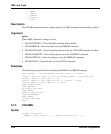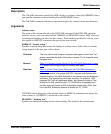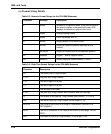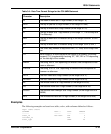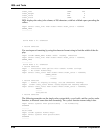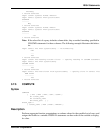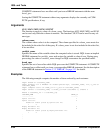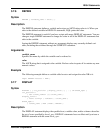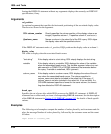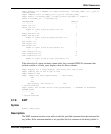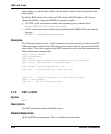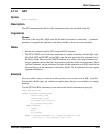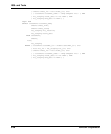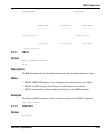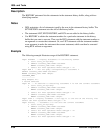
ISQL Statements
FairCom Corporation 3-23
3.7.6 DEFINE
Syntax
DEFINE [ variable_name = value ] ;
Description
The DEFINE statement defines a variable and assigns an ASCII string value to it. When you
refer to the defined variable in DISPLAY statements, ISQL prints the value.
The DEFINE statement is useful if you have scripts with many DISPLAY statements. You can
change a single DEFINE statement to change the value in all of the DISPLAY statements that
refer to the variable.
Issuing the DEFINE statement without any arguments displays any currently-defined vari-
ables, including those defined through the COMPUTE statement.
Arguments
variable_name
Specifies the name by which the variable can be referred to.
value
The ASCII string that is assigned to the variable. Enclose value in quotes if it contains any non-
numeric values.
Example
The following example defines a variable called nestate and assigns the value NH to it.
ISQL> DEFINE nestate = "NH" ;
3.7.7 DISPLAY
Syntax
DISPLAY { [ col_position ] display_value } [ , … ] ON break_spec ;
col_position::
{ COL column_number | @ column_name }
display_value::
{ "text string" | variable | column_name }
break_spec::
{ column_name | ROW | PAGE | REPORT }
Description
The DISPLAY statement displays the specified text, variable value, and/or column value after
the set of rows specified by break_spec. DISPLAY statements have no effect until you issue a
BREAK statement with the same break_spec.




